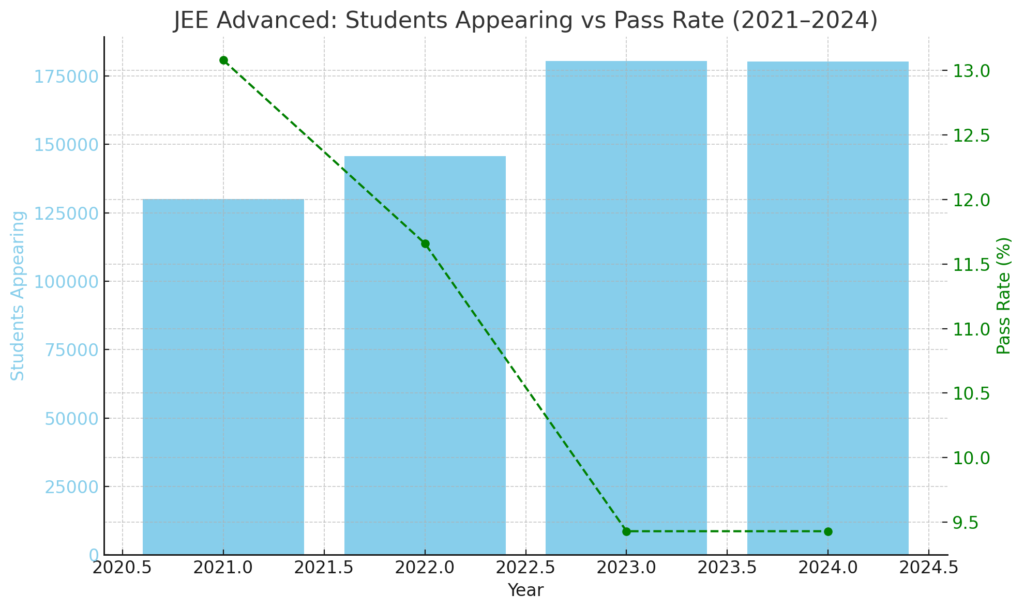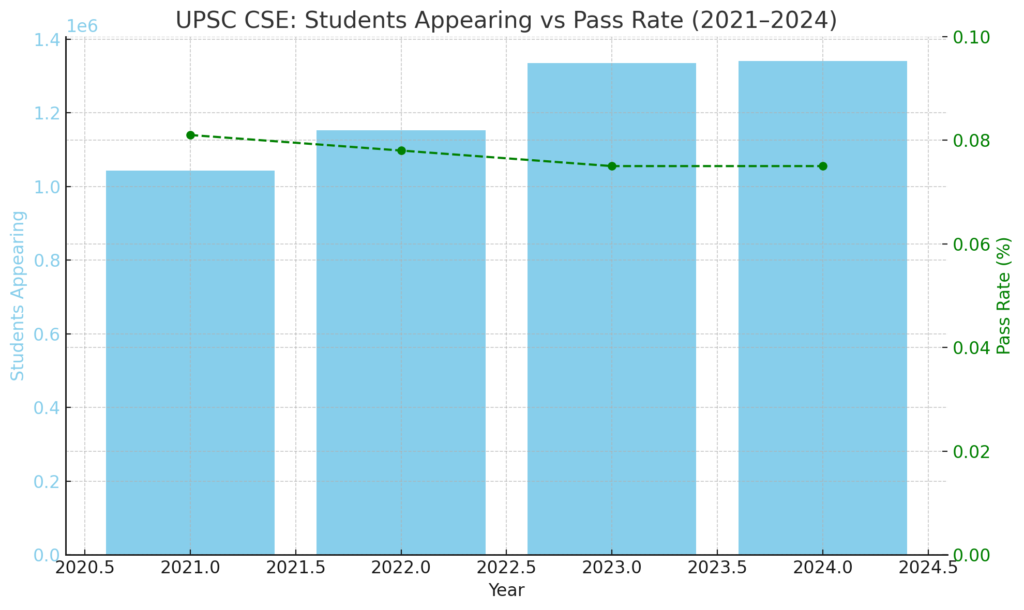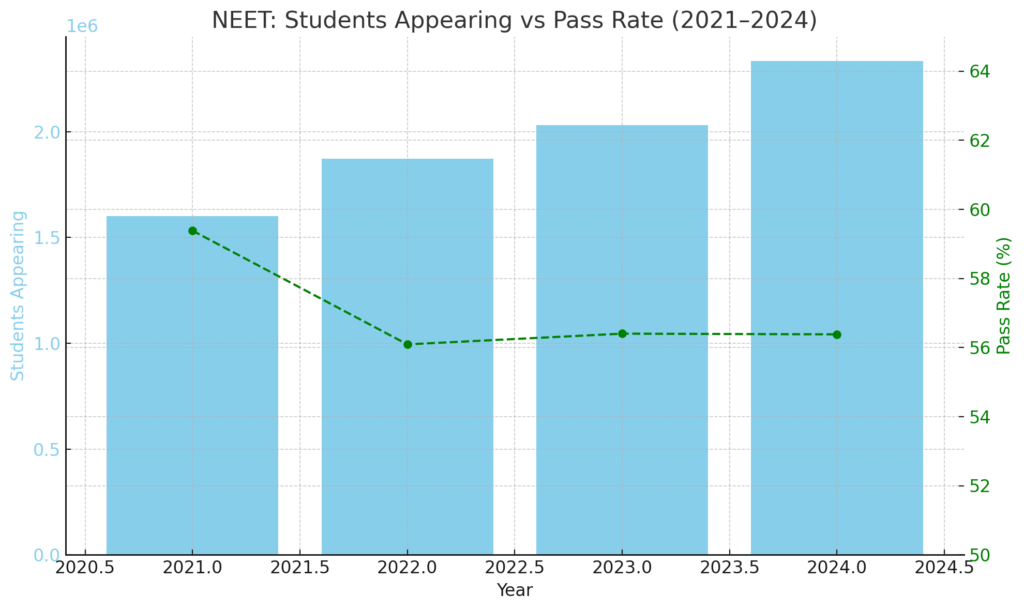Table of Contents
India, a country known for its competitive academic landscape, has an extensive range of entrance exams that cater to various fields and professions. From engineering and medical to law and management, students across the nation face a series of examinations that test their abilities, perseverance, and determination. However, when we talk about the toughest exam in India in 2025, the conversation narrows down to a select few that truly push the boundaries of what students can handle.
In this article, we will delve into some of the most grueling exams that students face in 2025, analyzing the unique aspects of each, and understanding why they are considered among the toughest in the country.
Understanding the Toughest Exams: The Criteria
Before diving into specific exams, it’s important to understand what makes an exam particularly challenging. A few key factors come into play:
- Level of Competition: The number of candidates vying for a limited number of seats often determines the difficulty of an exam. The more competitive the exam, the higher the pressure.
- Syllabus and Content Depth: The breadth and complexity of the syllabus are crucial. Exams that require candidates to study vast amounts of material across various subjects typically demand more preparation time.
- Time Constraints: Limited time to solve complex questions adds another layer of difficulty. Exams with tight time limits test both knowledge and speed.
- Exam Pattern and Question Complexity: Multiple-choice questions (MCQs), subjective papers, and problem-solving exercises can all vary in difficulty. The complexity of the questions directly influences the challenge posed by the exam.
- Psychological and Physical Demands: Some exams require long hours of concentration and mental stamina, making them particularly demanding from a psychological standpoint.
1. JEE Advanced (Joint Entrance Examination)
Arguably one of the most difficult exams in India, the JEE Advanced is the gateway for admission to the prestigious Indian Institutes of Technology (IITs). Each year, over a million students appear for the JEE Main exam, and only the top 2.5 lakh are eligible to sit for the JEE Advanced.

Key Features:
- High Competition: With more than a million applicants, the competition for a limited number of IIT seats is fierce. Students are required to outperform their peers across multiple subjects.
- Syllabus Depth: The JEE Advanced syllabus covers subjects such as Physics, Chemistry, and Mathematics, and delves deep into concepts taught at the 11th and 12th-grade levels. The questions require both theoretical understanding and practical application.
- Unpredictable Nature: The exam is known for its challenging, conceptual, and sometimes ambiguous questions that test a student’s problem-solving ability.
Why It’s Tough:
The JEE Advanced not only demands strong conceptual knowledge but also the ability to think critically under pressure. The exam includes negative marking for incorrect answers, which heightens the stakes.
2. UPSC Civil Services Examination
The UPSC Civil Services Examination (CSE) is often considered the pinnacle of competitive exams in India. It is the gateway to the Indian Administrative Services (IAS), Indian Police Services (IPS), Indian Foreign Services (IFS), and other prestigious positions in the Indian government.

Key Features:
- Three Tiers: The exam consists of three stages – Prelims, Mains, and the Interview. Each stage is exhaustive and requires extensive preparation.
- Vast Syllabus: The syllabus covers a wide range of subjects, including history, geography, political science, economics, and current affairs. The General Studies paper alone is broad and diverse, while optional subjects add another layer of complexity.
- In-depth Analysis: The Mains exam requires students to write essays and answer questions in great detail. This tests not only knowledge but also the ability to articulate complex thoughts coherently.
Why It’s Tough:
The UPSC CSE is demanding because of the vastness of its syllabus, the unpredictability of the exam pattern, and the intense pressure to perform consistently well across all stages. Furthermore, the success rate is extremely low, making it even more competitive.
3. The NEET (National Eligibility cum Entrance Test)
For students aspiring to enter the medical field in India, the NEET exam is the ultimate challenge. It is the only entrance exam for undergraduate medical courses (MBBS and BDS) in India.

Key Features:
- Single Entrance Exam for All Medical Colleges: NEET is the single national-level exam for all medical colleges in India, including the most renowned ones like AIIMS and JIPMER (which have now adopted NEET).
- High Competition: With over 15 lakh candidates taking the exam each year, the competition for medical seats is extremely fierce.
- Time Pressure and Precision: The NEET exam is known for its fast-paced nature, requiring students to answer 180 questions in a span of three hours.
Why It’s Tough:
The NEET exam requires immense precision and speed. The subjects – Physics, Chemistry, and Biology – cover extensive theoretical content, and candidates need to have a thorough understanding of every concept. A slight error can cost students a significant number of marks, given the large volume of applicants.
4. GATE (Graduate Aptitude Test in Engineering)
The GATE exam is designed for students who wish to pursue postgraduate education in engineering and technology. It is also used by various public sector enterprises to recruit engineers.

- Competition: Approximately 9 lakh candidates appear for the GATE exam annually for a limited number of postgraduate seats and job opportunities.
- Syllabus: The exam tests students on core engineering subjects related to their undergraduate degree, requiring an in-depth understanding of engineering principles.
- Format: The exam consists of 65 questions, and candidates must answer them in 3 hours. Given the level of technicality involved, it is regarded as one of the toughest exams for engineers.
A GATE Analysis Report published by India Today suggests that the success rate is around 15%, making it a highly challenging exam.
Also Check – How to Prepare for GATE Exam Without Coaching
5. CAT (Common Admission Test)
The CAT exam is the gateway to the prestigious Indian Institutes of Management (IIMs) and other top B-schools in India. It is an entrance exam for students seeking admission to management courses.

Format: CAT is a computer-based test with three sections, each of which has a set time limit. The overall time pressure contributes significantly to its difficulty.
Competition: Around 2 lakh candidates take the CAT exam every year for approximately 5,000 seats across IIMs.
Syllabus: The exam tests students on quantitative ability, data interpretation, logical reasoning, and verbal ability. The time constraints and the complexity of questions make it a highly competitive exam.
Comparison on Most Toughest Exam in India in 2025
| Exam Name | Duration | Questions to Cover | Complexity | Students Appearing | Pass Rate |
|---|---|---|---|---|---|
| JEE Advanced | 6 hours (two papers) | Approximately 180-200 | Very High | ~180,000-200,000 | ~9-10% (admission to IITs) |
| UPSC CSE | Prelims + Mains + Interview | Multiple papers | Extremely High | ~10-13 lakh | ~0.075-0.1% (final selection) |
| NEET | 3 hours | 180 | High | ~17 lakh | ~50-60% (qualifying for counseling) |
| CAT | 2 hours | 66 (VARC, DILR, QA) | Moderate to High | ~2.2 lakh | Above 95th percentile (selection threshold) |
| GATE | 3 hours | 65 (MCQ + NAT) | High (Technical) | ~8.5 lakh | ~17-18% (qualifying) |
Which Amongst These is the Toughest?
Determining which exam is the toughest is subjective and depends on various factors such as the individual’s strengths, weaknesses, and preparation strategy.
If we consider factors such as the breadth of the syllabus, the level of competition, and the success rate, the UPSC Civil Services Exam (IAS) stands out as the toughest exam in India. It demands a multi-faceted approach, with long-term preparation, a deep understanding of subjects, and the ability to handle pressure. However, each exam has its own unique set of challenges, and the “toughest” exam can vary depending on an individual’s preparation, subject expertise, and personal strengths.
Is It Possible to Crack the Toughest Exam?
The question of whether it’s possible to crack the toughest exams in India often arises among aspirants. While the difficulty of these exams is undeniable, the answer is a resounding “Yes.” With the right preparation strategy, mindset, and approach, even the most challenging exams can be tackled successfully.
Effective Preparation Strategies
For students attempting these exams, effective preparation is crucial. Here are some strategies that have been proven successful:
- Early and Consistent Preparation: Starting early and maintaining consistency in your studies is key. For exams like UPSC, JEE, and NEET, preparation often spans months, if not years.
- Focus on Conceptual Clarity: Understanding the fundamentals is critical. Rote memorization often leads to confusion in exams that test application-based knowledge.
- Practice with Mock Tests: Regularly taking mock tests helps students familiarize themselves with the exam format and time constraints. It also helps in identifying weak areas that need more focus.
- Time Management: Managing time during both preparation and the exam is essential. Balancing speed and accuracy is crucial, especially for exams like CAT and JEE.
Conclusion
The toughest exams in India in 2025 are not just tests of knowledge—they are tests of perseverance, endurance, and strategic thinking. Whether it is the prestigious UPSC Civil Services Exam, the fiercely competitive JEE Advanced, or the high-stakes NEET, each of these exams presents its own set of challenges. The competition is intense, and the preparation is rigorous. However, with the right strategy, a disciplined approach, and a clear focus, success is within reach.
As India continues to produce some of the brightest minds, these exams serve as a testament to the rigorous standards that drive excellence in the nation’s educational landscape. The key takeaway for aspiring candidates is that while the path is tough, the rewards are significant, and with proper preparation, success is not just a dream, but an achievable reality.
References:
- India Today, 2025, “GATE Exam Insights: Preparing for Postgraduate and PSUs.”
- Times of India, 2025, “The Challenges of UPSC: A Comprehensive Overview.”
- National Medical Journal of India, 2025, “NEET: A Deep Dive into the Medical Entrance Exam.”

